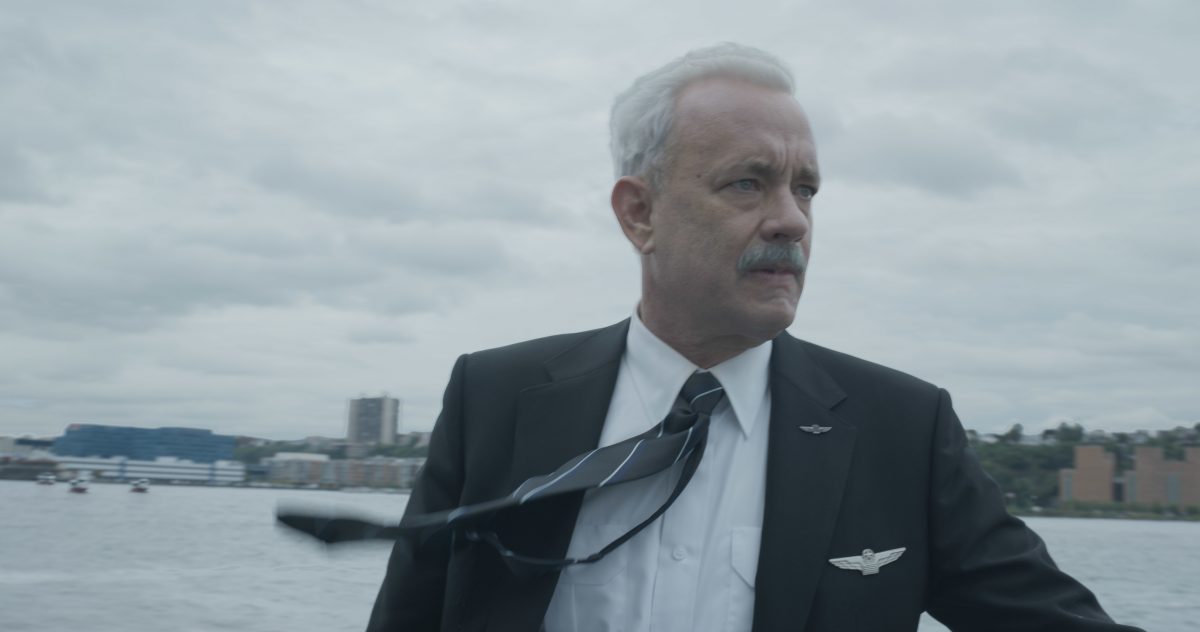
Clint Eastwood’s last film, American Sniper, gave us a complicated and tormented American hero, an ace sniper who suffered from PTSD. With Sully—about Captain Chesley “Sully” Sullenberger, who successfully landed a plane on the Hudson River in January, 2009, saving all 155 “souls” on board—his hero is unambiguous, unimpeachable. Or was he? The film chronicles the strange ordeal that Sully (Tom Hanks) endured after he landed the plane. We all know that he was publicly hailed as a hero. What we don’t know is that his heroics were viewed with a jaundiced eye by a panel of experts. Every plane crash, of course, results in an investigation, but in this case, USAir officials seemed hellbent on finding Sully at fault—arguing that he had time to turn the plane around and go back to LaGuardia, or perhaps land at a nearby Teterboro airport—thus minimizing their own liability. Their probe forces even the redoubtable Sully to second guess himself.
So imagine this: You’re a former U.S. Air Force fighter pilot turned career commercial pilot—a modest, soft-spoken man with more than 40 years on the job and a perfect safety record. You have engine failure mid-air and, against all odds, you expertly land your plane on the Hudson River. Somehow, miraculously, you and all of your passengers survive, and as you’re processing the events and the trauma you just lived through, you’re assailed by two things: an insatiable media and a skeptical review board, questioning your every move. In that sense, both of Eastwood’s recent films are about PTSD.
The august director works methodically here, slowly and patiently taking us inside Sully’s world. (The film starts with Sully having a nightmare of crashing the plane in midtown Manhattan.) Eastwood doesn’t show us the emergency landing all at once, but in parts throughout the film—first the passengers cheerfully boarding the plane, then the bird strike, then the landing from the perspective of a horrified air traffic controller who thinks the plane is lost, and then the landing’s terrifying aftermath, as cold and wet passengers shiver on the wings and on life boats (a few even fell into the Hudson). It’s only at the very end that we see the specifics of Sully’s split-second choices, his brave decision making in the cockpit, his calm in the face of catastrophe.
Along for the ride, as it were, is Sully’s copilot,Jeff Skiles (Aaron Eckhart), who never wavers in his support of his captain. The crash brings the two men closer—it’s a shared trauma that only they can fully understand—and the film, which is based on Sully’s book, treats the wisecracking, loyal-to-the-bone Skiles with great affection. He even gets the film’s (funny-ish) last line. At home, we have the anxious and supportive wife ™ played by Laura Linney, who seems too good an actress for this stock part, but hey, I guess she’s got to work, too.
Sully could have been—and in some ways, should have been—a more emotionally stirring film, filled with cheering passengers and soaring music. But the film is almost as lowkey and restrained as its subject, as if Eastwood were fighting the natural tendency to exploit the story’s inherent melodrama. Still, the landing itself—I’d say “crash” but Sully would correct me—is edge-of-your-seat stuff (Eastwood, even at 86, can direct the hell out of an action scene) and the film clocks in at a fat-free 96 minutes. The film feels expert, efficient, if not quite as cathartic as one might hope. (If there’s one slightly indulgent thing Eastwood does, it’s suggest that Sully’s heroism was actually curative for a New York City still reeling from the 9/11 attacks. “New York could use some good news involving a plane,” notes one observer.)
Hanks, sporting Sully’s famous white hair and blunt mustache, is predictably great, especially in a scene where he’s informed that all his passengers survived, but it’s a quiet, dignified performance, the kind that has lately become his stock-in-trade.
Since Eastwood is a known conservative and Sully is a white, male, middle-aged hero, it’s easy to ascribe a kind of political point-of-view to the film. (To give some context, no less than Pat Buchanan recently wrote an op-ed bemoaning the lack of white male heroes in popular culture—he must not get out much.) But Sully is a man without bombast or bravado, who cares about others, and goes about his business with honor, seriousness, and bravery. Now that’s an American hero I can get behind.
